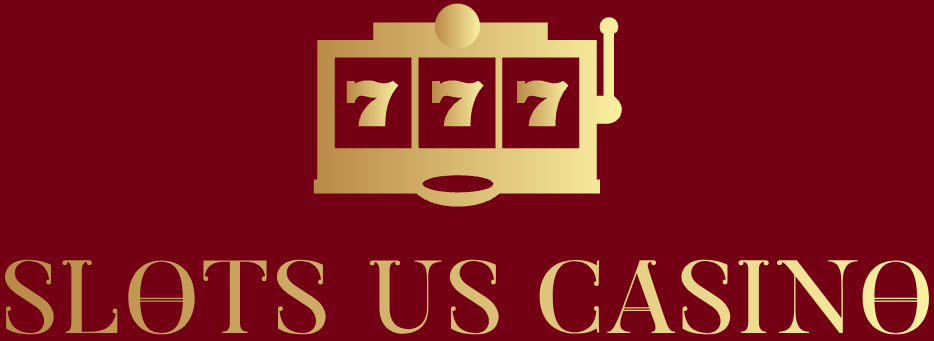The house edge is a fundamental concept in gambling, representing the statistical advantage casinos maintain over players.
This built-in percentage ensures that, on average, the casino will retain a portion of each bet over time. Understanding the house edge is crucial for effective bankroll management and setting realistic expectations.
Calculating the house edge involves complex mathematical formulas specific to each game.
For example, in American roulette, the house edge is approximately 5.26%, derived from the presence of two zero pockets on a 38-pocket wheel. In blackjack, the house edge can be as low as 0.5% with optimal play, but increases significantly with suboptimal strategy.
The house edge directly impacts game selection.
Games with lower house edges, such as blackjack or baccarat, offer players better long-term prospects compared to those with higher edges, like keno or certain slot machines. However, it’s important to note that a lower house edge doesn’t guarantee short-term wins, as variance plays a significant role in individual gaming sessions.
Informed gamblers use house edge information to make strategic decisions about which games to play and how to allocate their bankroll.
By favoring games with lower house edges and employing optimal strategies, players can potentially extend their playing time and improve their overall gambling experience. However, it’s crucial to remember that the house edge ensures that, in the long run, the casino maintains a statistical advantage in all games.
Definition of House Edge
The concept of “house edge” is a fundamental principle in casino operations. It represents the statistical advantage the casino maintains over players in any given game.
Specifically, the house edge is the average percentage of each wager that the casino expects to retain over extended periods of play. This mathematical advantage ensures the casino’s long-term profitability, despite potential short-term fluctuations.
Different casino games exhibit varying house edge percentages. In blackjack, when played with optimal strategy, the house edge can be as low as 0.5%.
Conversely, games with less skill involvement often have higher house edges. European roulette typically has a 2.7% house edge, while American roulette, due to the addition of a double zero, increases this to 5.26%.
The house edge is an intrinsic feature of all casino games, including slot machines and poker variations. It doesn’t guarantee losses on individual bets but ensures the casino’s profit over a large number of wagers.
Understanding the house edge allows players to make informed decisions about game selection and risk assessment. Awareness of the house edge can contribute to more effective bankroll management and realistic expectations regarding gambling outcomes.
It’s a crucial factor for players to consider when engaging in casino activities, as it directly impacts the long-term financial implications of their gaming choices.
Calculation of House Edge
The house edge is a crucial concept in casino gaming, representing the statistical advantage the casino maintains over players.
It’s calculated as the average percentage of each bet that the casino expects to retain over the long run.
To determine the house edge, one must compare the true odds of winning to the payout odds offered by the casino.
This difference forms the basis of the casino’s profit margin.
Using roulette as an example:
- A standard American roulette wheel has 38 numbers (1-36, 0, and 00).
- The probability of winning a single number bet is 1/38.
- The casino typically pays 35:1 for a winning single number bet.
Calculation for a $1 bet:
- Expected value of winning: (1/38) * $35 = $0.921
- Expected value of losing: (37/38) * $1 = $0.974
- Net expected value: $0.921 – $0.974 = -$0.053
The negative expected value (-$0.053) indicates that, on average, a player loses 5.3 cents per dollar wagered.
This translates to a house edge of 5.26%.
Different casino games have varying house edges:
- Blackjack (with optimal strategy): 0.5% – 1%
- Craps (pass/come bets): 1.41%
- Baccarat (banker bet): 1.06%
- Slot machines: 2% – 15% (varies widely)
Understanding the house edge allows players to make informed decisions about which games offer the best odds and to manage their expectations regarding potential losses over time.
Why House Edge Matters
Understanding the house edge is crucial for informed casino gaming. This concept represents the average percentage a casino expects to retain from each wager over time, providing insight into the mathematical advantage inherent in various games.
The house edge serves several important functions:
-
Risk assessment: It allows players to evaluate the potential long-term cost of participating in specific games.
-
Game comparison: By comparing house edges across different games, players can identify which options offer more favorable odds.
-
Bankroll management: Knowledge of the house edge aids in estimating potential losses and planning gambling budgets accordingly.
-
Expectation setting: It helps players recognize that casinos have a built-in advantage, mitigating unrealistic expectations of consistent winnings.
-
Strategy development: Understanding the house edge can inform betting! strategies and game selection to optimize chances of success.
While the house edge doesn’t guarantee specific outcomes in individual sessions, it provides a statistical framework for evaluating casino games.
Players who consider this factor can make more informed decisions about their gambling activities, potentially improving their overall experience and financial outcomes.
It is important to note that while knowledge of the house edge can be beneficial, it doesn’t eliminate the inherent risks associated with gambling.
Responsible gaming practices and adherence to personal limits remain essential regardless of one’s understanding of casino mathematics.
House Edge in Different Games
Casino games exhibit varying house edges, which significantly impact a player’s chances of winning.
Blackjack, when played with optimal strategy, typically has a house edge of around 0.5%, making it one of the more favorable games for players.
American roulette carries a 5.26% house edge due to the presence of a double zero, while European roulette offers a lower 2.7% edge with its single zero.
Slot machines’ house edges can range from 2% to 10%, depending on the specific game and casino.
This variability necessitates careful selection for those who choose to play.
Craps offers different house edges based on bet types, with the basic “Pass Line” bet having a relatively low 1.41% edge.
Baccarat presents a 1.06% house edge when betting on the banker’s hand, but this increases substantially to 14.36% for tie bets.
Understanding these house edges allows players to make more informed decisions and potentially manage their bankroll more effectively.
It is important to note that while knowledge of house edges can inform gameplay, it doesn’t guarantee winning outcomes.
Responsible gambling practices and awareness of the inherent risks associated with casino games remain crucial.
Strategies to Minimize Losses
Minimizing losses in gambling requires a combination of strategic approaches and self-discipline.
Setting a predetermined budget is crucial to prevent excessive spending. This budget should represent an amount the individual is willing to lose without financial hardship.
Game selection plays a significant role in loss minimization.
Games with lower house edges, such as blackjack and baccarat, statistically offer better odds for players. Learning and applying basic strategies for these games can further reduce the house advantage.
For instance, mastering basic blackjack strategy can significantly decrease the casino’s edge.
Casino bonuses and promotions can potentially extend playing time without additional cost.
However, these offers often come with specific terms and conditions, including wagering requirements. It’s essential to thoroughly review and understand these conditions before accepting any promotional offers.
Time management is an important aspect of responsible gambling.
Implementing self-imposed time limits for gambling sessions and taking regular breaks can help maintain mental clarity and reduce the likelihood of impulsive decision-making.
These strategies, when applied consistently, can contribute to a more controlled and potentially less costly gambling experience.
However, it’s important to note that gambling always carries inherent risks, and there’s no guaranteed method to eliminate the possibility of losses.
Common Misconceptions
Common gambling misconceptions can lead to unrealistic expectations and poor decision-making.
One prevalent myth is the belief that certain betting systems, such as the Martingale strategy, can overcome the house edge. However, statistical analysis demonstrates that no betting system can alter the mathematical advantage held by the house.
These systems may create an illusion of short-term success but don’t guarantee long-term profitability.
Another misconception is that casinos manipulate games to ensure player losses at critical moments.
This belief is unfounded, as modern casinos operate under strict regulatory oversight and employ certified random number generators to ensure fair gameplay.
Independent auditing bodies regularly verify the integrity of these systems.
The concept of “hot” and “cold” streaks is another fallacy embraced by some gamblers.
This belief stems from the gambler’s fallacy, which incorrectly assumes that past outcomes influence future results in random events.
In reality, each spin of a roulette wheel or hand of cards is an independent event, statistically unaffected by previous outcomes.
Understanding these facts can help gamblers make more informed decisions and maintain realistic expectations when engaging in casino games.
It’s crucial to approach gambling with a clear understanding of the statistical probabilities involved and the inherent house advantage in most casino games.
Impact on Long-Term Play
The house edge in gambling has a significant cumulative effect on long-term play. This mathematical advantage represents the casino’s average profit per bet and ensures their profitability over time, despite short-term fluctuations.
For example, a game with a 5% house edge statistically results in an average loss of $5 for every $100 wagered.
This percentage loss compounds over multiple rounds or sessions, gradually diminishing the player’s bankroll.
Empirical data from the gambling industry supports this concept. Casinos’ consistent profitability demonstrates the effectiveness of the house edge in the long run.
While individual wins occur, the persistent house advantage means the overall odds favor the casino.
Understanding the impact of the house edge on long-term play is crucial for setting realistic expectations and promoting responsible gambling practices.
It allows players to make informed decisions about their gaming activities and manage their resources more effectively.
The house edge concept applies to various casino games, each with its own specific percentage.
Players should be aware that extended play increases the likelihood of the house edge manifesting in their results, regardless of short-term outcomes.
Choosing Games Wisely
The house edge significantly influences long-term outcomes in casino games.
Understanding this concept allows for more informed game selection. The house edge represents the casino’s statistical advantage, effectively functioning as their profit margin.
Games with lower house edges generally offer better odds for players. Blackjack, when played with optimal strategy, can have a house edge as low as 0.5%.
In contrast, slot machines typically have higher house edges, ranging from 2% to 10%.
Knowledge of game rules and strategies is crucial for minimizing the house edge.
In craps, bets on the Pass Line or Don’t Pass Line have lower house edges compared to more complex wagers.
Poker, being a skill-based game played against other players rather than the house, can potentially offer better odds for skilled participants.
Games like keno and certain roulette variations often have higher house edges.
Keno, in particular, is known for its high house edge, which can exceed 25% in some cases.
Selecting games based on their house edge and understanding optimal play strategies can improve a player’s overall odds.
However, it’s important to note that the house edge ensures that, over time, the casino maintains a statistical advantage in all games.
Conclusion
By understanding the house edge, you’re more equipped to make smart gambling choices. Remember, it’s not about eliminating losses but minimizing them. Choose games with lower house edges, manage your budget wisely, and set realistic expectations. Misconceptions can lead to poor decisions, so base your strategies on solid knowledge. Ultimately, being informed helps you enjoy gambling responsibly and strategically. You’re now ready to approach gambling with a well-informed mindset.

